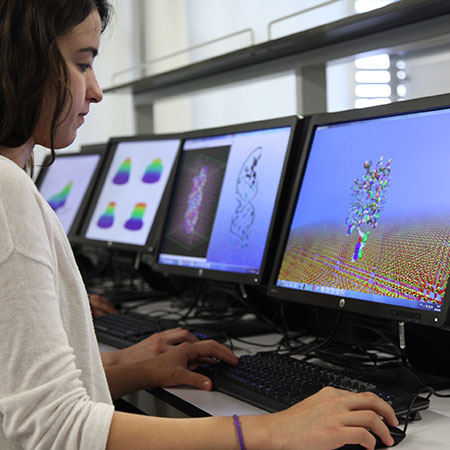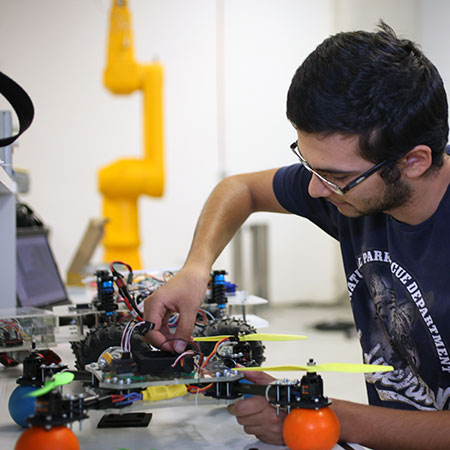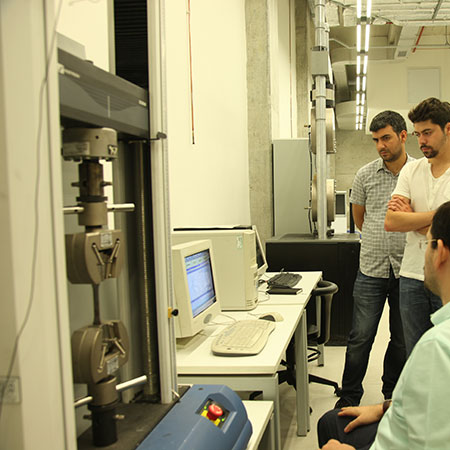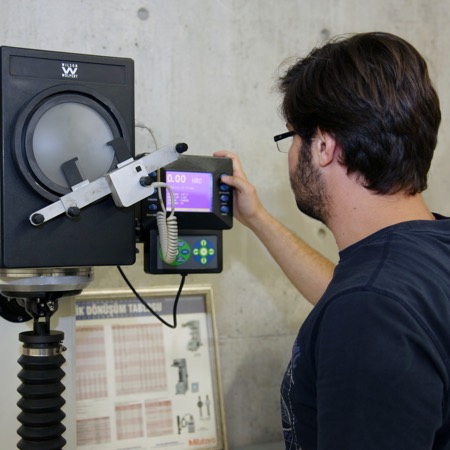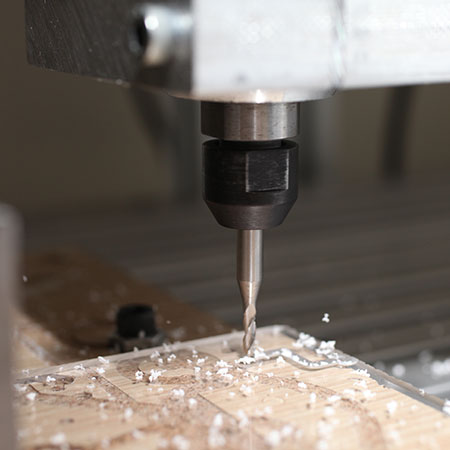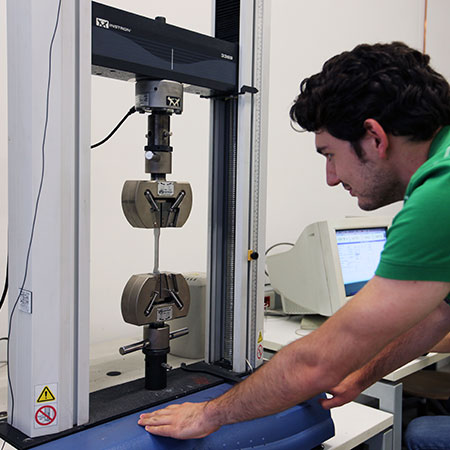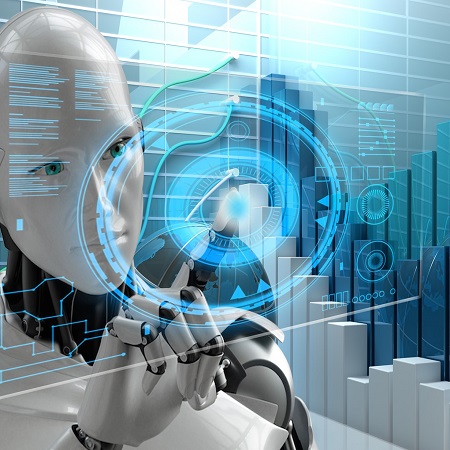Departmental Required Courses
| Course Code | Course Name | Prerequisite | Credit | AKTS |
| BMM 101 | Introduction to Biomedical Engineering | - | 2 | 4 |
| Core areas of biomedical engineering, biomaterials, biosensors, molecular biology and genetics, drug delivery systems, biomechanics, physiological signals (ECG, EEG, EMG, EOG, ENG), medical imaging systems, clinical engineering. | ||||
| BMM 102 | Biochemistry | - | 3 | 6 |
| Fundamentals of biochemistry, water and its importance in biological systems, amino acid, peptide and proteins, detailed structures of proteins, protein function, enzymes, carbohydrates, lipids and biological membranes. | ||||
| BMM 203 | Medical Biology | - | 3 | 6 |
| Basic characteristics of living organisms, the concept of the cell, properties and functions of the cell membrane, general features of cell organelles, chemical components of the cell, cell signaling systems, genetic material, flow of genetic information; replication, transcription, and translation. | ||||
| BMM 205 | Fundamentals of Materials Science | - | 3 | 6 |
| Structure of the atom, interatomic bonds, crystal structures of solids, defects in solids (point, line, and plane), diffusion and diffusion mechanisms, mechanical properties of metals, dislocations and strengthening mechanisms, ductile and brittle fracture, fatigue, creep, and phase diagrams and transformations; ferrous, non-ferrous, ceramic, polymer, and composite biomaterials. | ||||
| BMM 205L | Fundamentals of Materials Science Laboratory | - | 1 | 2 |
| Applications on mechanical tests and properties (metallography experiment, tensile test, hardness test, bending and torsion test, impact test, fatigue test, creep test). | ||||
| BMM 202 | Cell and Molecular Biology | 3 | 6 | |
| Major discoveries in cell and molecular biology, transport of proteins to membranes and organelles, isolation and purification of cell organelles and proteins, imaging and culturing of cells, stem cells, cell death, structure of eukaryotic genes, chromosomal organization of genes and non-coding DNA, transposable DNA elements, organelle DNA, regulation of gene expression, genetic mutations and DNA repair, cancer. | ||||
| BMM 202L | Cell and Molecular Biology Laboratory | 1 | 2 | |
| Introduction to cell and molecular biology laboratory and concentration calculation, parts and working principles of the microscope, estimation of human hair thickness under the microscope, examination of the morphology of leaf and epithelial cells, DNA isolation from human cells, determination of DNA concentration and quality by spectrophotometry, polymerase chain reaction (PCR), genotyping by restriction endonuclease digestion and agarose gel electrophoresis, introduction to cell culture, enzymatic detachment and passaging of adherent cells, cell counting using a hemocytometer, protein lysate preparation, protein separation by polyacrylamide gel electrophoresis, and protein detection by Western blot. | ||||
| BMM 206 | Physiology for Engineers | - | 3 | 6 |
| Anatomy and homeostasis, neural control mechanisms, membrane potentials, synapses, central nervous system, peripheral nervous system, EEG and sleep, musculoskeletal system: skeletal system, skeletal muscle, circulatory system: blood, heart, vessels, excretory system: kidneys. | ||||
| BMM 207 | Electronic Circuits in Biomedical Engineering | MAT 102 | 3 | 6 |
| Basic concepts, Mesh and nodal methods, Circuit theorems, energy and power concepts. Superposition, Source transformations. Super nodes and super meshes, Mutual inductance. , Natural and forced responses in first and second order circuits. Dynamic response in multi-mesh and multi-node circuits. State equations. State-space solution of first order circuits. Analysis of RLC circuits. Power analysis of alternate currents, monophase-triphase voltage, current-voltage relationship, grounding, current leakages, Electrical safety in medical devices, protection and isolation circuits in medical devices. | ||||
| BMM 207 L | Electronic Circuits Laboratory in Biomedical Engineering | - | 3 | 6 |
| Introduction to Laboratory Equipment, PSpice Basic concepts, Basic Electronic Measurements, Resistive circuits, Thevenin Equivalent Circuits and Superposition Principle, Investigation of RL, RC and RLC Circuits, passive filters. | ||||
| BMM 305 | Biomaterials | 3 | 6 | |
| Fundamental principles of biomaterials, biomaterials used in the design of medical devices and for repairing or replacing soft and hard tissues, interactions of biomaterials with living tissue and their behavior in the body, biocompatibility, biodegradation, analysis of degradation and failure processes resulting from biological responses to biomaterials, regulatory compliance and performance requirements for the commercialization of biomaterials and medical devices. | ||||
| BMM 307 | Biomedical Signals and Systems | 3 | 6 | |
| Physiological Signals (ECG, EEG, EMG, EOG, ENG), Physiological Control Systems, Time Domain Represantation of Signals, Continuous and Discrete Signals, Convolution of Continuous-Time and Discrete-Time Signas, Linear Time-Invariant Systems, Eigenfunctions and Eigenvalues, Laplace Transform, Transfer Function , Fourier Series, Fourier Transform, Multidimensional Signals and Systems, Two-Dimensional Fourier Transform. | ||||
| BMM 309 | Tissue Engineering | - | 3 | 6 |
| Components of tissue engineering, tissue scaffolds, biomaterials and fabrication methods, cell sources and stem cells, biosignal molecules and controlled release approaches, gene therapy approaches, tissue engineering bioreactors, cell-sheet engineering, bioprinting, examples of the engineered tissues. | ||||
| BMM 309L* | Tissue Engineering Laboratory | - | 1 | 2 |
| Tissue engineering applications; working in a sterile environment and actively conducting experiments in groups, material fabrication, cell culture and characterization, similarities/differences between the properties of the experimental results and natural tissues, and the reasons for these. | ||||
| BMM 311 | Biomechanics | - | 3 | 6 |
| Bone, articular cartilage, tendons and ligaments, peripheral and spinal nerve roots, skeletal muscles, biomechanics of the knee, hip, foot and ankle, lumbar spine, neck, shoulder, elbow, and hand, fracture fixation and joint treatment. | ||||
| BMM 311L | Biomaterials and Biomechanics Laboratory | - | 1 | 2 |
| Surface analysis with atomic force microscopy, surface hydrophobicity measurement via contact angle analysis, mechanical testing and properties of metallic bone plates and screws. | ||||
| BMM 302 | Biomedical Instrumentation | - | 3 | 6 |
| Mathematical Basis of Physiological Systems, Nernst Equation, Goldman Equation, Donnan’s Equilibrium Condition, Hodking-Huxley Model of Cell Membrane , Action Potential, Electrical Activity of Heart, Hemodynamics, Instrumentation Amplifiers, Electrocardiography Devices, Electromyography Equipments, Electroencephalography Devices, Nervous System and Measurement Devices, Hemodialysis Equipments, Pulmonary Function Testing Equipments. | ||||
| BMM 302L | Biomedical Instrumentation Laboratory | - | 1 | 2 |
| Use of Instrumentation Amplifiers, Detection of Electrocardioghy (ECG) Signals, , Detection of Electromyography (EMG) Signals, Detection of Electroencephalography (EEG) Signals Detection of Respiratory Signals, Analysis of Oxygen Saturation. | ||||
| BMM 310 | Numerical Methods in BME | 3 | 6 | |
| Fundamental and applied studies in computational bio(nano)technology and materials theory, numerical methods and algorithms, diffusion, bioinformatics, molecular dynamics, homology modeling, and protein structure modeling using basic algorithm writing/interpreting techniques. | ||||
| BMM 316 | Biomedical Sensors and Transducers | - | 3 | 6 |
| Biosensors which monitor levels of blood electrolytes for real-time patient management. Fundamental principles underlying the transducers that convert chemical activity into electrical or optical signals. Principles of Motion Sensors, Force Sensors and Principles, Types of Temperature Sensors, Sensors for Physiological Signals. Sensitive and selective biological membranes based on ion, enzyme, and immune-reactions. Sensor stability and response time. Other processes involved in the operation of the sensors such as membrane diffusion, capillary transport and cell separation. Devices for measuring blood gases, electrolytes, hemoglobin, glucose, PH, drugs and other bioactive compounds. | ||||
| BMM 316L | Biomedical Sensors and Converters Laboratory | - | 1 | 2 |
| The experiments are covering the biochemical reactions with electrochemical, amperometric, potentiometric, mass sensitive and optic changes. Motion Sensors Experiments, Force Sensors Experiments, Temperature Sensors Experiments, Experiments with Sensors for Physiological Signals. The comparison of signal by means of selectivity, sensitivity, response time and linearity. Design of transducers. | ||||
| BMM 491 | Medical Imaging Systems | 3 | 6 | |
| Multi-Dimensional Signal Processing, X-Ray Imaging Systems, Digital X-Ray Equipments, Digital Angiography, Computed Tomography (CT), Image Recontruction Algorithms of Computed Tomography, Ultrasound and Color Doppler Echocardiography, Gamma Camera Equipments, Magnetic Resonance (MR) Physics, Magnetic Resonance Imaging Systems, Image Reconstruction Methods in MR, Thermal Imaging Systems, Optical Imaging Systems | ||||
| BMM 498 | Senior Design Project | - | 4 | 8 |
| All stages from the selection to the completion of an appropriate project aimed at providing biomedical engineering students with a comprehensive design experience by utilizing the knowledge and skills they have acquired during their undergraduate education. | ||||
Departmental Elective Courses
| Course Code | Course Name | Prerequisite | Credit | ECTS |
| BMM 410 | Biomedical Electronics | 3 | 6 | |
| Physiological Signals, Operational Amplifiers, Instrumentation Amplifiers, Filter Design, Protection and Isolation Circuits in ECG Devices, Fault Detection Circuits in ECG devices, Defibrillator Types and Circuits, EEG Amplifiers, EMG Amplifiers, Circuits of Pulse Plethysmography, Respiratory Signal Detection and Amplification. | ||||
| BMM 411 | Biomedical Image Processing | 3 | 6 | |
| BMM 412 | Biomedical Signal Processing | 3 | 6 | |
| Time and Frequency Domain Analysis of Physiological Signals, Filter Design, Processing of Electrocardiography (ECG) Signals, Analysis of Heart Rate Variability, Processing of Electromyography (EMG) Signals, Processing of Electroencephalography (EEG) Signals, Evoked Potentials, Respiratory Signals Processing. | ||||
| BMM 413 | Noise Reduction Techniques in BME | 3 | 6 | |
| BMM 414 | Microprocessors and Microcontrollers in BME | 3 | 6 | |
| BMM 415 | Magnetic Resonance Imaging | 3 | 6 | |
| Magnetic Resonance (MR) Physics, MR Coils, Superconducting Coil structures, Safety Circuits in MR Magnets, MR Cooling Systems, RF Amplifiers, RF Coils, MR Sequences, Gradient Coils, Frequency Encoding, Phase Encoding, Raw Data Matrix Filling, Two-dimensional Fourier Transform and Image Reconstruction Algorithms. K-Space, Advanced Topics in MR. | ||||
| BMM 416 | Microscopic Imaging | 3 | 6 | |
| BMM 420 | Computational Methods in BME | 3 | 6 | |
| BMM 420 course covers the subjects of molecular dynamics and homology modeling and their applications in protein structure prediction and protein / ligand interactions. Students gain a detailed perspective about the molecular basis of the physical behavior of hard/soft materials. The accuracy analysis of the both modeling techniques and the conditions under which they can be used will also be discussed. | ||||
| BMM 421 | Bioinformatics | 3 | 6 | |
| Bioinformatics involves developing and applying computational methods for managing and analyzing information about the sequence, structure and function of biological molecules and systems. Biological data can be categorized based on the levels of information that exist in living organisms: DNA, RNA, proteins, metabolites, and other small molecules. This course will cover biological questions that are associated with these data, and the computational approaches to address these questions. The course will focus on the types of biological data; the computational problems that arise while analyzing biological data; a set of algorithms that have important applications in computational biology, and the core set of widely used algorithms in computational biology such as sequence alignment, evolutionary trees, protein structural prediction, and transcription data analysis. | ||||
| BMM 422 | Biostatistics | 3 | 6 | |
| BMM 423 | Biomimicry and Biodesign | 3 | 6 | |
| BMM 424 | Computational Drug Design | 3 | 6 | |
| BMM 424 course teaches the principles govern the process of modern drug discovery and development. Students in the course follow a path similar to that taken by real-life drug developers by learning important elements of the drug design process in a logical order. This course focuses on structure-based drug design. It will outline experimental and computational methods for the study of ligand-protein complexes, and discuss how the knowledge of the three-dimensional structure of the active site helps in the lead optimization process. This course will also cover approaches used to design competitive and mechanism-based inhibitors based on the mechanistic understanding of enzyme catalysis. | ||||
| BMM 425 | Computational Cell Biology | 3 | 6 | |
| BMM 426 | Biometrics | 3 | 6 | |
| BMM 427 | Synthetic biology | 3 | 6 | |
| BMM 430 | Biotechnology | 3 | 6 | |
| BMM 431 | Bionanotechnology | 3 | 6 | |
| Bionanotechnology is the branch of science and engineering that develops novel tools and devices using nano-sized materials (organic and inorganic) and their unique properties. In the 21st century, it is expected that bionanotechnology will bring breakthrough innovation in manufacturing, electronics, energy, and medicine to create a new industrial revolution. In this course, we will focus on the DNA, RNA and protein synthesis, chemical synthesis, DNA sequencing and growth; mutations and protein engineering, vaccines, antibiotics, and issues of biotechnological inventions. | ||||
| BMM 432 | Biocompatibility | 3 | 6 | |
| This course provides an understanding of the concept of biocompatibility and the methods for biomaterials testing. This course covers the basic properties of biomaterials, medical requirements and clinical significance. Desinfection and sterilization of biomaterials. Phenomena at the biointerfaces. Molecular and cellular processes with living environment, blood-materials interaction, short and long term reactions to the body. Testing of biomaterials: in vitro, in vivo preclinical and in vivo clinical tests. | ||||
| BMM 433 | Biological Surfaces and Interfaces | 3 | 6 | |
| BMM 434 | Biomedical and Dental Implant Materials | 3 | 6 | |
| BMM 435 | Orthopedic Cements for Hard Tissue Repair | 3 | 6 | |
| BMM 436 | Neural Tissue Engineering | 3 | 6 | |
| BMM 440 | Ceramic-Based Biomaterials | 3 | 6 | |
| BMM 441 | Metal-Based Biomaterials | 3 | 6 | |
| BMM 442 | Polymer-Based Biomaterials | 3 | 6 | |
| This course is designed to motivate student learning for the application of polymer-based biomaterials in the field of biomedical engineering, with emphasis on understanding their synthesis, processing, characterization and application. This course will cover some of the widely used synthetic and natural polymers including polylactic acid, polycaprolactone, chitosan, polyacetals, dendrimers, elastomers, degradable hydrogels, non-degradable polymers (polyethylene, polyurethane, polymethylmetacrylate), etc. During the semester we will discuss these topics in the context of polymeric biomaterials for wound healing and orthopedic tissue regeneration applications. Students will contribute to discussions through performing market search on relevant products (hydrogels), and proposing novel bioactive constructs (grafts, scaffolds) for their applications, as well as identify methods for characterization and production. | ||||
| BMM 443 | Nanomedicine | 3 | 6 | |
| Problems of conventional drug delivery, rationale of using nanomedicine, classification of nanomedicine platforms, targeting strategies in nanomedicine, therapeutic. | ||||
| BMM 444 | Drug Design and Delivery | 3 | 6 | |
| Pharmacokinetic and pharmacodynamic parameters in drug delivery, important barriers for drug delivery involving blood-brain barrier, important factors for traditional drug delivery platforms, drug delivery routes, liposomal, micellar, polimeric and inorganic material based smart drug delivery systems. Finally some important parameters for drug design will be discussed. | ||||
| BMM 445 | Mass and Energy Transfer in Biosystems | - | 3 | 6 |
| The basic principles of mass and energy transfer. Fick’s Law and Fourier’s Law. Diffusion and thermal diffusion. Passive, facilitated and active transport in biological systems. Equimolar countercurrent diffusion. The mechanisms of transfer in lung, kidney, brain barrier and others. | ||||
| BMM 446 | Thermodynamics of Biomolecular Systems | - | 3 | 6 |
| Thermodynamic laws. Zeroth, First and Second Law. Definition of state, the energy levels in thermodynamics, entropy. Heat, work and energy. The basic differentiation in biomolecular systems, minimum entropy processes. | ||||
| BMM 450 | Biofluid Mechanics | - | 3 | 6 |
| Principles of momentum transfer. Newton’s law of momentum. Equation of continuity. Fluid dynamics. Newtonian and non-newtonian fluids. Viscosity, kinematic viscosity. Flow through vessels and function of hearth. | ||||
| BMM 451 | Neural-control and Motion Mechanics | 3 | 6 | |
| BMM 452 | Biomedical Robotics | 3 | 6 | |
| BMM 453 | Technical Design in BME | 3 | 6 | |
| BMM 460 | Physiological Control Systems | 3 | 6 | |
| BMM 461 | Cardiovascular Instrumentation | 3 | 6 | |
| BMM 462 | Clinical Engineering | 3 | 6 | |
| BMM 463 | Medical Informatics | 3 | 6 | |
| BMM 464 | Medical Technology Management | 3 | 6 | |
| BMM 465 | Medical Device Regulation | 3 | 6 | |
| BMM 470 | Electromagnetic Theory | 3 | 6 | |
| BMM 471 | Bioelectromagnetism | 3 | 6 | |
| BMM 472 | Biomedical Optics | 3 | 6 | |
| BMM 473 | Radiation Physics | 3 | 6 | |
| BMM 480 | Enzyme Science | 3 | 6 | |
| This course focuses on characteristic features of enzymes, enzymes as biocatalysts, enzymatic catalysis, the transition state theory, enzyme kinetics, Michaelis-Menten equation, enzyme inhibition, cooperativity and allosteric enzymes, examples of enzymatic catalysis, coenzymes, isolation, purification and characterization of enzymes. Enzyme immobilization techniques and applications of free and immobilized enzymes in the food and pharmaceutical industries will also be discussed. | ||||
| BMM 481 | Genetic Engineering | 3 | 6 | |
| This course covers basic techniques used in the fields of biotechnology and genetic engineering, and discusses recombinant DNA technology applications in medical diagnosis, therapy, agriculture, microbial biotechnology and environmental biotechnology. | ||||
| BMM 482 | Toxicology | 3 | 6 | |
| This course will focus on the principles underlying the toxic actions of various substances, their uptake and mode of action. Biotransformation of drugs, carcinogens, and other toxicants and effects of free radicals and antioxidants will also be discussed. | ||||
| BMM 483 | Bioaffinity Chromatography | 3 | 6 | |
| BMM 484 | Bioseparation | 3 | 6 | |
| Characteristics and applications of separation processes. Simple equilibrium processes. Multistage processes. Continuous contact processes. Binary- and multi- component processes. Selection of the process. Optimum design. Yield and efficiency. Energy requirement. | ||||
| BMM 485 | Biochemistry and Proteins in Biotechnology | 3 | 6 | |
| BMM 486 | Membrane Technology and Separation Techniques | 3 | 6 | |
| Definition and Classification. Membrane preparation and characterization. Membrane processes: Microfiltration, Reverse Osmosis, Dialysis, Electrodialysis, Gas separation and Pervoparation. Other applications: Biochemical Electrodes, Controlled Release, Bioyogically active component immobilization. | ||||


